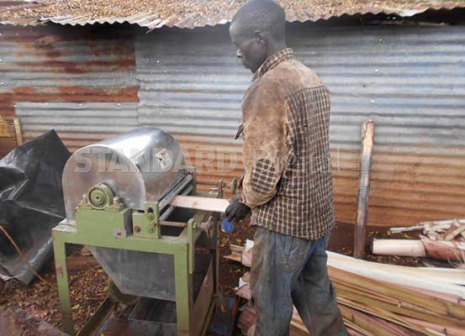
Banana farmers have for many years only eaten or sold the fruit and discarded its stem. Unknowingly, they have been trashing a valuable part of the plant known for its high fibre. In Kirinyaga County alone, farmers destroy at least 10 million stems annually. Had they been extracting fibre from the banana stems, they would be at least Sh1.2 billion richer every year.
But in what promises to change the fortunes of the Kirinyaga farmers, a local NGO has intensified campaigns to promote banana farming for purposes of food and income generation with emphasis on fibre extraction.